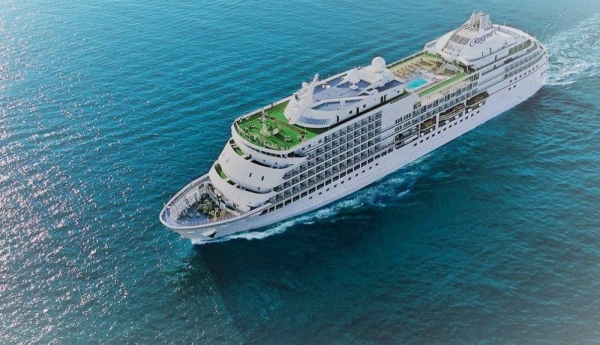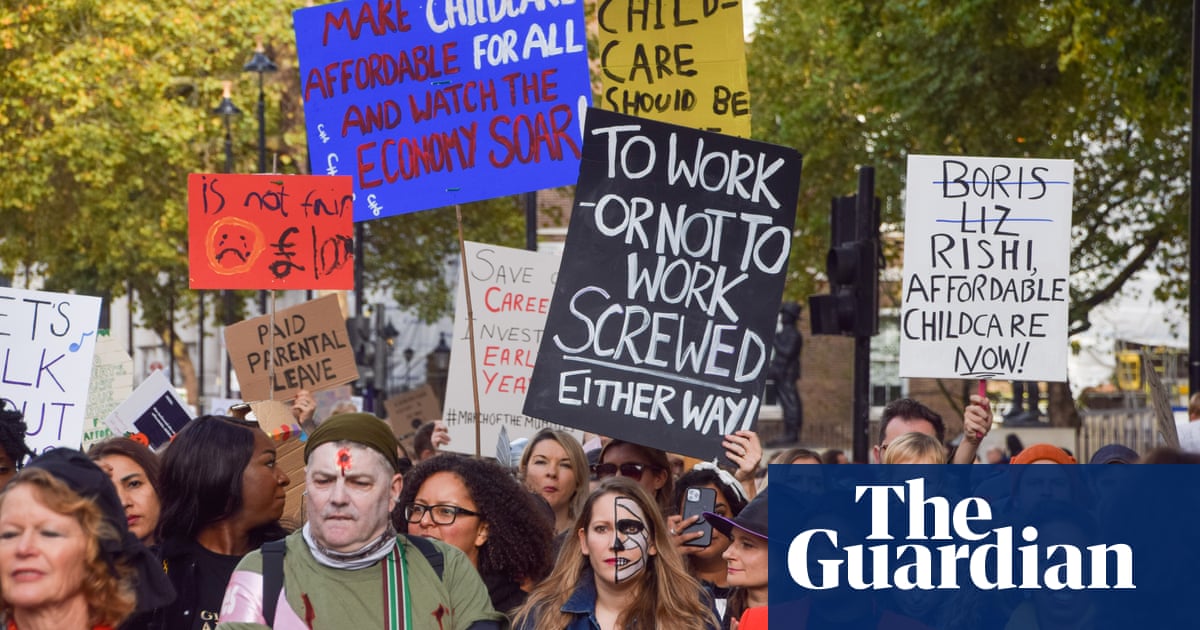
ruise ships and their crews have been largely out of sight and mind since being ordered out of Australian territorial waters in March. As the ill-fated Ruby Princess finally left its temporary berth in Port Kembla on 23 April with only the crew on board, the last thing on anyone’s mind was an imminent return of paying passengers on cruises heading to Australian ports.
But now tickets are on sale for cruises that sail as soon as September, raising urgent questions about the future of the industry.
Australia’s international cruise ship ban is now due to end on 17 September, after being extended by three months last week.
One of the first ships scheduled to arrive in Australian ports is Royal Caribbean’s Ovation of the Seas, which is scheduled to leave Hawaii on 27 September, bound for Sydney. In April the ship was linked to a significant Australian Covid-19 cluster and at least two deaths, and was among more than a dozen ships that anchored off the coast of Australia in a stand-off with authorities after the order to leave.
After the recent nightmare of coronavirus clusters on board ships with multinational crews, home ports on the other side of the world and owners often domiciled in tax havens, experts and industry players have urged the government to carefully consider radical change before the reintroduction of cruising to Australian waters.
‘It doesn’t have to be like this’
Some of the ships Australia sent away are among the 19 now floating in Manila bay in the Philippines. Helicopter footage shows them dotting the horizon, goliaths sleeping out the pandemic, potentially thousands of workers still trapped in their bowels.
They are dormant now, but unions and seafarer advocacy groups believe this is the chance for Australia to reconsider its role in feeding these giants.
“I think this is the only opportunity in my lifetime to make some changes and make these people live up to the standards that we expect,” says Dean Summers, the Australian Coordinator for the International Transport Workers Federation.
“If we let them go back to business as usual, we are missing our chance.”
“Australia should be paving the way for an Australian cruise ship industry. It doesn’t have to be like this, we don’t have to employ the most vulnerable people under very low conditions.”
Summers says the pandemic has “exposed the underbelly” of the cruise industry, which unlike air travel is largely deregulated and decentralised.
“Many of those ships are still trying to get those people off. There’s been no real breakthrough, everyone’s still suffering terribly on those ships. Many have been without pay and away from their families during the most terrible time of all their lives.”
He says he has lost contact with the crew on the Ruby Princess since the ship arrived in the Philippines, and is concerned for their welfare.
In May a female Ukrainian worker died after apparently jumping from the Regal Princess outside Rotterdam in the Netherlands.
On the Navigator of the Seas, off the coast of Miami, 15 Romanian crew started a hunger strike in protest at not being able to disembark. Police have had to be called to other boats across the world after crews protested.
The vast majority of cruise ships are registered in countries such as Panama, Bermuda and Liberia, which have limited oversight and more relaxed requirements for working conditions and pay.
Low labour costs help keep the price of cruises down.
While cruise liners have a comfortable financial cushion – Carnival recorded $4.8bn profit for 2018, according to a report from the University of Sydney – the lack of current cashflow is placing strain on the companies to restart operations.
Justin Wastnage, a tourism industry expert from the University of Sydney, says the industry will need to cut ticket prices to restart its business.
“Forward bookings, which the industry relies on, have evaporated, and they have been offering 125% credit on cancelled cruises, so there is quite a lot of money leaving the industry,” he says.
“Going forward they are going to need to offer extremely low prices to entice people back.”
Australia is one of the largest markets for cruise companies, and the Maritime Union of Australia is urging the government to leverage this to change the status quo.
“The Australian government not only has a unique opportunity but a moral obligation, to learn from the Covid-19 pandemic and radically reform the way the cruise ship industry is regulated before allowing operations to restart in Australian waters,” the union’s national secretary, Paddy Crumlin, says.
“The Morrison government should use their strong bargaining position with multinational cruise lines desperate to restart operations to negotiate for these vessels to be registered in Australia, crewed by Australian workers, and governed by Australian laws.”
“The failed model of the past, where multinational cruise lines earned billions from Australian passengers on cruise ships registered in notorious tax havens and crewed by exploited migrant workers, can’t be allowed to continue,” Crumlin says.
“This failed self-regulated approach led to the debacle of the Ruby Princess, resulting in dozens of deaths, along with the situation where dozens of cruise ships were left to languish in Australian waters, with no home port to go to, inadequate medical support, and no way to repatriate crew members.”
‘All of the efforts to date could be undone’
Given Australia’s relative success in containing the coronavirus spread, and the contrasting disaster unfolding in the US, there is significant doubt that thousands of passengers would be allowed to dock even by September, but Royal Caribbean is accepting booking and payments for rooms on the Ovation of the Seas.
Carnival Cruise Line is also selling a number of voyages around Australia and the Pacific islands. The president of Carnival Australia and P&O Cruises, Sture Myrmell, says it is “important that we don’t get ahead of ourselves in relation to the resumption of cruising in this region”, but there are no obvious warnings on the Carnival website that these trips may not go ahead.
“It is generally well known that cruising is currently subject to a rolling pause in operations,” a Carnival spokesman says.
“We are [accepting bookings] in a way that gives people maximum flexibility with minimal upfront financial outlay combined with conducive cancellation and refund arrangements.”
Oceanic Cruises is using room upgrades, onboard credit and free alcohol and shore excursions to entice people to book cruises in October. Its new advertising campaign urges people to “remember the future”.
Prof Marylouise McLaws, an infectious disease expert from the Univerity of NSW, says international cruises should not be accepted in Australia until there is a vaccine for Covid-19.
“All of the efforts to date could be undone quite rapidly by allowing overseas visitors on cruise ships to leave the ship,” she says.
“There are many countries around the northern hemisphere that are just not working as good global citizens to try to contain this nasty virus.”
But she says there could be a pathway to allowing cruises that travel only around Australia or even New Zealand if case numbers get closer to zero.
“Passengers would have to be tested as they entered the ship, and then by the time they get to another port return all negative results. If anyone tested positive then no one would be allowed off as it’s an amplifying environment. There are false negatives from the tests but it’s better than nothing,” she says.
‘Our goal is to raise our standards to entirely new levels’
Myrmell says Carnival is encouraged by talk of a trans-Tasman bubble, but “acknowledge fully that the resumption of cruising is not straightforward”.
Most major cruise lines have announced new safety procedures for reopening, including enhanced patient screening and additional hand sanitisation stations.
“We will not start operations until we are fully ready to do so, with all the hygiene and other health protocols solidly in place,” the chief executive of Royal Caribbean Cruises, Richard Fain, says.
“Our goal is to raise our standards to entirely new levels. We have the time, we have the determination and we have the expertise.”
Myrmell says Carnival and its subsidiaries will “always comply with the conditions necessary for cruising to return as a safe holiday option”.
The managing director of the Cruise Lines International Association’s Australasian branch, Joel Katz, says it is inaccurate to say the industry is unregulated.
“All ships are required to operate at or above compliance with the numerous layers of strict international, national, and local laws … CLIA cruise lines support and comply with the International Labour Organization’s Maritime Labour Convention, which sets international standards addressing hours of work and rest, health and safety, and living conditions for seafarers.”
But if domestic cruises do reopen, the International Transport Workers Association wants consumers to have an Australian alternative.
Summers says: “We all buy clothes that are from sweatshops and slave labour around the world. I don’t think people are going to say, from a moral perspective, I’m not taking my family on the cruise. I just don’t think that will happen. But let’s look at ways to create an alternative so that they do have a choice.
“I’d like to say, well from a moral perspective, there’s an Australian-flagged ship here and there’s a cheap ship from a flag of convenience, I’ll go on the Australian one and support the Australian industry. I think that’s the way forward.”












